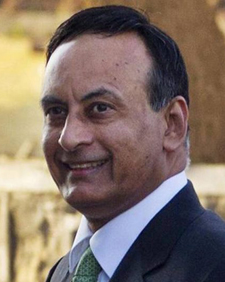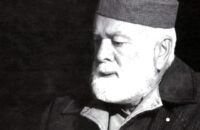HUSAIN HAQQANI
The Donald Trump administration flattered Pakistan’s Prime Minister Imran Khan and army chief General Qamar Bajwa, hoping that Pakistan will use its influence over the Taliban to advance the Afghan peace process. The recent spate of terrorist attacks in Afghanistan, including the one targeting vice-presidential candidate Amrullah Saleh over the weekend, makes it obvious that the Taliban see an imminent US withdrawal as an opportunity to escalate violence, not to end it.
The optics of Khan’s visit have encouraged Pakistan’s belief in its indispensability to the US. The ongoing talks with the Taliban in Doha without a ceasefire have contributed to the Taliban’s faith in their imminent victory. But such exaggerated Pakistani and Taliban expectations could delay rather than expedite a reasonable settlement.
President Trump should now take steps, including an invitation to Afghanistan’s president Ashraf Ghani for an Oval Office meeting, to dispel the impression that the US is ready to abandon its Afghan allies for the sake of a quick US withdrawal.
As signatory to a Bilateral Security and Defence Cooperation Agreement with the United States as well as a Status of Forces Agreement that covers the presence of NATO and US troops in Afghanistan, it is Afghanistan’s government, not the Taliban or Pakistan, who should have first say on the terms of a peace settlement.
An ally is defined as “a state formally cooperating with another for a military or other purpose”. The Afghan government and its national army have fought against the Taliban alongside American troops. Even if Pakistan were to fulfil its promise of helping the United States in talking to its battlefield adversary, its role in giving the Taliban safe haven in the first place cannot be forgotten.
Although Pakistan played a key role in providing lines of communication to the US troops, it also hosted the insurgents who attacked American soldiers across its borders. For years, the US overlooked Pakistan’s role in Afghanistan because of its support in hunting down some al-Qaeda terrorists immediately after 9/11.
Trump’s eagerness to end US involvement in the Afghan war should not encourage future supporters of insurgents who attack Americans to play both sides. Any deal secured by ignoring those who fought alongside Americans while embracing those who enabled the enemy won’t work. It would only encourage other states to do what Pakistan seems to have done successfully.
Even with Pakistan’s full support, which is hardly ensured, the road to peace in Afghanistan is not easy. Americans and the Taliban seem to have very different notions of peace even as they continue talks in Doha. The Taliban continue attacks across Afghanistan and seem interested only in securing American withdrawal, not in committing to an inclusive peace.
The Taliban are an ideologically motivated group and their ideology leads them to see things very differently from others. For example, the Taliban’s latest attacks have come soon after they promised in the ‘roadmap for peace’ in Afghanistan to “avoid threats, revenges, and conflicting words, shall use soft terminologies and words during their official gatherings, and shall not fuel conflict and revenge”.
How are violent attacks and suicide bombings not a violation of that commitment? According to Taliban negotiator Abbas Stanikzai, actions against foreign occupation are not the violence that the Taliban have promised to avoid. We can expect similar definitional differences even after a peace deal is finalised.
The roadmap for peace agreed to by the Taliban assures women’s rights “within the Islamic framework of Islamic values”. It also promises to institutionalise “an Islamic system in the country.” It is unlikely that the Taliban would agree to liberal or tolerant interpretations of Islam.
Similarly, the Taliban’s “assurance of zero interference from neighbouring and regional countries in Afghanistan” can only be taken with a pinch of salt. The group’s leadership continues to be based in Pakistan and it is from Pakistan that the Afghan negotiators have been travelling to Doha and other destinations for peace talks.
The US Special Representative for Afghanistan Reconciliation, Zalmay Khalilzad, had stated that talks with the Taliban were focused on four aspects and progress on all was necessary for a final deal: counter-terrorism assurances, US troop withdrawal, intra-Afghan dialogue, and a comprehensive ceasefire.
Of these, the US’ decision to withdraw its troops does not require an agreement with the Taliban while the Taliban’s counter-terrorism assurances are likely to lack credibility. The Taliban have made no significant concession by ‘agreeing’ to let the US withdraw its forces in return for the promise that anti-American terrorists would not be allowed to operate from Afghanistan.
The Taliban’s refusal to accept a ceasefire is explained away as an insurgent group’s fear of losing its leverage. But only when they agree to a ceasefire would the Taliban make a real concession, which makes that the most important test of their willingness to compromise.
The term ‘intra-Afghan dialogue’ suggests that Afghanistan is back to where it was when the Taliban regime was toppled in 2001, without an effective government. At that time, the international community gathered leading Afghan personalities and cobbled together an interim government.
That situation no longer applies. Afghanistan has an elected government, however flawed some might consider it. Real negotiations for peace must eventually take place between the Taliban and the Afghan government. But the Taliban do not recognise the government, describing it as an American puppet.
Once US and NATO troops leave Afghanistan, the conflict there would be a continuation of the civil war that preceded the US military involvement. In her study, ‘Committing to Peace: The Successful Settlement of Civil Wars,’ Professor Barbara Walter of the University of California, San Diego established that most civil wars end in decisive military victories, not negotiated settlements.
Only a quarter (25 per cent) of civil wars end in negotiated settlements, which “tend to divide political power amongst the combatants based on their position on the battlefield”. The Taliban are likely to demand a larger chunk in power-sharing, citing their ability to attack and disrupt various parts of the country with support from Pakistan.
There is no guarantee that Pakistan will not support the Taliban in another march on Kabullike it did in 1994-96. The US government’s ask from the Pakistan government should be to help diminish the Taliban’s fighting capability, not just transporting Taliban leaders from their comfortable homes in Pakistan for talks.
Trump had promised Americans that he will make them win again. A flawed deal that does not result in peace and is projected by the Taliban as an American defeat would hardly be a win for America. The US would look better if the Taliban are chastened by the prospect of losing their Pakistani safe haven and the Afghan government that is America’s ally has a key role in negotiations.
Husain Haqqani, director for South and Central Asia at the Hudson Institute in Washington D.C., was Pakistan’s ambassador to the United States from 2008-11. His books include ‘Pakistan Between Mosque and Military,’ ‘India v Pakistan: Why Can’t we be Friends’ and ‘Reimagining Pakistan’.
























